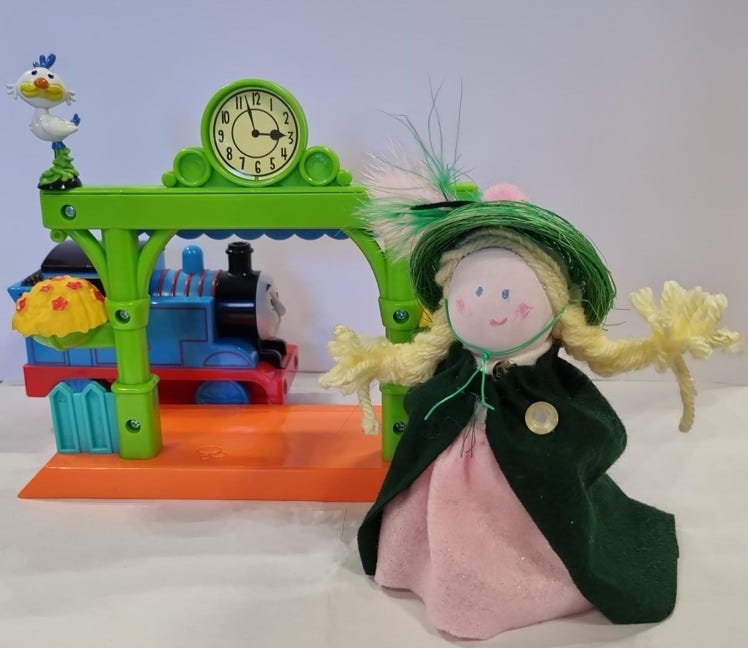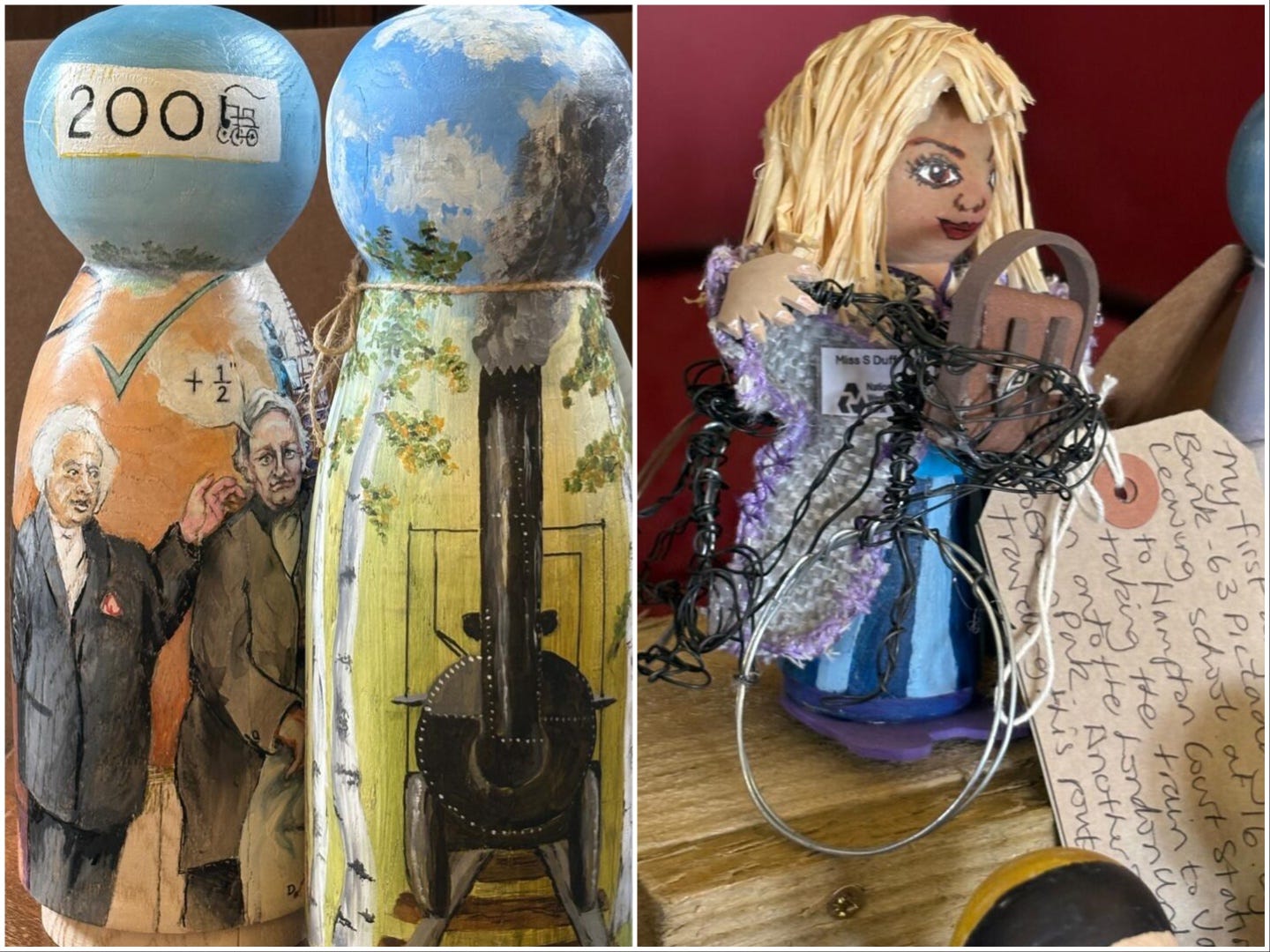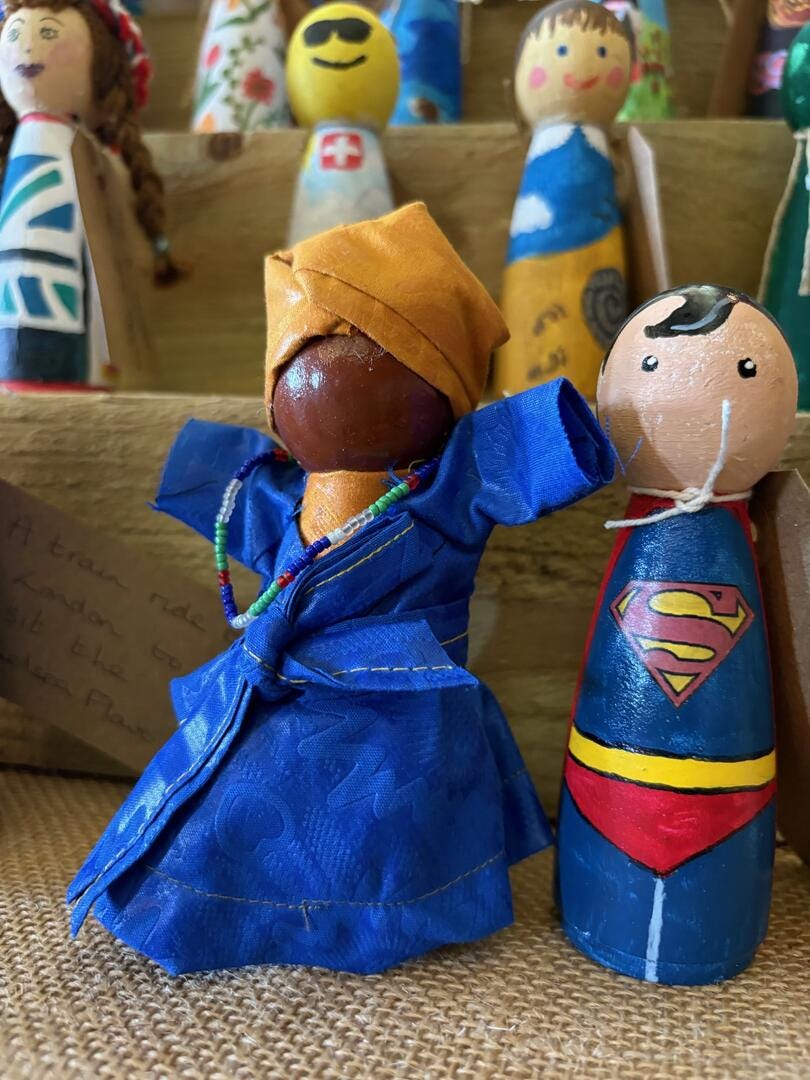All dolled up for the Stockton & Darlington bicentenary
Dolls by the thousand deliver boost to railway festival celebrations. Tony Henderson reports
An army of dolls has inspired thousands of individuals to join in the 200th anniversary celebrations of the opening of a North East railway which helped change the world.
Organisers of the Stockton & Darlington Bicentenary festival distributed 22,000 peg dolls which people could decorate or craft to represent their own most memorable rail journey.
The ploy has proved a big hit, with 15,000 dolls being returned from across the UK and abroad after being taken to other countries by North East rail enthusiasts.
The dolls and their stories will be digitised to create an archive for the future.
A total of 5,000 have also gone on show until mid-October at the Preston Park Museum in Stockton, with more at Locomotion museum in Shildon in County Durham and the Hopetown rail heritage centre in Darlington.
Bicentenary festival director Niccy Hallifax said that the project had opened up the opportunity for thousands of people to be part of the celebrations.
Dolls went to care homes, schools, community centres, libraries, prisons, shopping centres, social clubs, hospitals, museums and civic hubs across the region.
Niccy said: “For 200 years, trains have connected people and places. So we invited communities in the region and beyond to reflect on their own unforgettable journey.
“The dolls prompted people to use their imagination and craft skills. It created a world of its own.
“We needed a mechanism for getting people involved in the festival and to create an archive so the history would not be lost. It really took off and has produced an amazing legacy.
“Each doll has been decorated with the memory of a personal journey, creating a tapestry of stories, some from as far away as China, Japan.”
Steve Davies from Darlington’s A1 Steam Locomotive Trust visited Sierra Leone to join in the celebrations to commemorate the 20th anniversary of the Sierra Leone National Railway Museum opening.
He took along a supply of dolls for local communities to decorate and brought them back to Darlington.
After being on display, the dolls will be photographed by volunteers to be digitised and then housed in archives in Durham, Tees Valley, the National Railway Museum and the National Archives.




